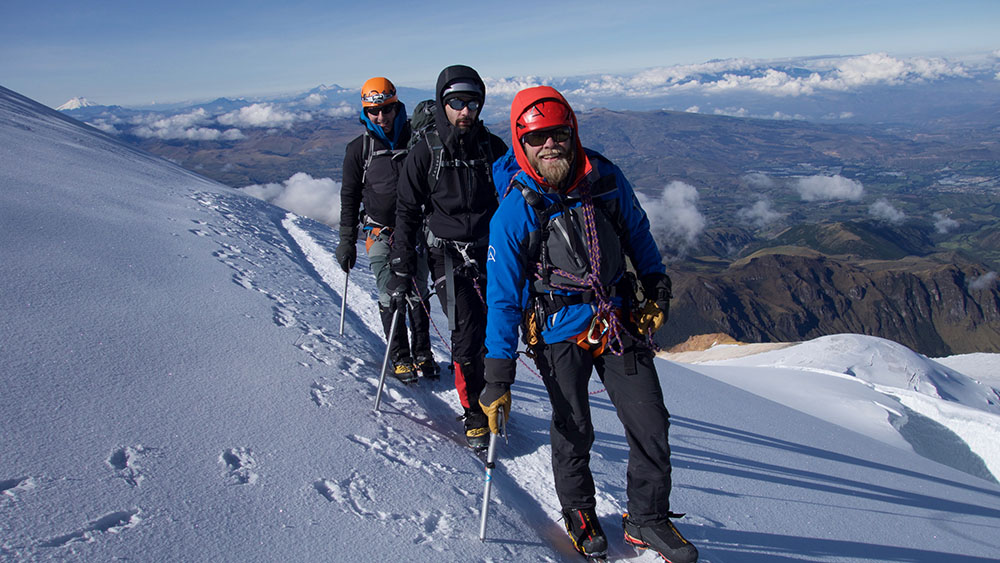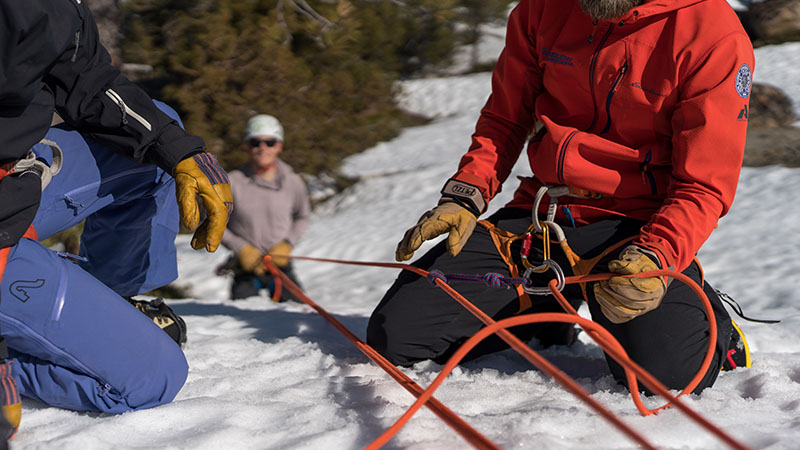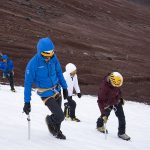How To Run an International Mountaineering Program during a Pandemic


These are uncertain times. While we can’t eliminate all the variables, our team has done a lot of legwork to make it possible to travel as responsibly as possible given the current state. Learn more about the modifications we’ve made to our international climbing programs from Logan Talbott, co-owner and chief guide. In the following interview, Logan gives a play-by-play of how we’ve altered operations to make it all work.
Q: How has the pandemic affected operations at Alpenglow?
“The pandemic has had significant effects on our operations across the board from our Lake Tahoe programs to our international programs. We’ve had to cancel a significant amount of our expeditions in 2020. Fortunately, starting in December and now again in February, we are able to operate internationally again. We’re restarting our international program slowly on specific expeditions where we can maintain a high degree of control over our operations and our logistics teams.”

Q: What international trips have we been able to run since reopening?
“We’ve been able to operate in Ecuador — a Climbing School and a Ring of Fire Ski Expedition. The majority of our lead mountain guides actually live in Ecuador so we’re able to have a lot of control over the entire operation down there.”
Q: What precautions are teams taking once we get in-country?
“We completely rebuilt our program to make it as safe as possible for our clients and staff. First of all, we require everyone to show proof of a negative COVID test, which is also a requirement if you are going to fly anywhere.
Once we’re in-country, all of our mountain guides and staff, including drivers, have also been cleared with a negative COVID test. For transport to/from the airport and to/from the mountains, we are using larger vehicles so that team members don’t have to sit next to anyone who isn’t in their pod. When we stay in hotels, everyone gets a single room, rather than sharing double occupancy rooms like we used to. Once we get to the mountains, our teams don’t use any of the communal bunk areas in the refuges, instead, we set up a little base camp outside of these lodges.”
Q: What precautions are required when we return to the US (or elsewhere)?
“For returning to the US or Canada (other countries have their own rules) every team member needs proof of a negative COVID test within 72-hours of boarding their flight.
We’ve partnered with our local logistics operators to locate high-quality testing facilities. Ecuador in particular has lots of options for PCR tests — anywhere from the normal 48-72 hour turnaround time to a 3-hour rapid test. I’ve been really impressed with Ecuador’s testing infrastructure. In fact, in some regards, it’s actually more streamlined than the testing at home in Northern California.
Near the end of the trip, depending on the timing of each team member’s flight home, we schedule time to make sure that each person can get tested before traveling. We swing by a local clinic and get PCR tests for everybody. The results get emailed back and team members have their results before they intend to fly back home.”

Q: What trips are we planning for this summer?
“Our Ecuador program is still rolling! We have a lot of signups for the upcoming trips and it has the most momentum of our international trips. We’re also looking at Peru. This summer we are running a variety of trips from the Cordillera Huayhuash Trek to technical mountaineering climbs in the Cordillera Blanca — that’s Alpamayo and Pisco Chopi. Finally, we’ve also been toying with the idea of doing a new ladies climb in the Cordillera Blanca with Carla Perez and we’re just starting to put together that program this summer. We’re also planning an Elbrus private ski descent in June, and we hope we can make that happen as well.”
Q: Even though international travel is starting to be possible again, there’s still a lot that is in flux. How are we handling the uncertainty?
“We realize there’s a tremendous amount of uncertainty with travel right now so we completely reworked our international and local cancellation policies to be way more flexible. In the new policy, for non-rapid ascent trips, we allow people to cancel for up to 2 weeks prior to the trip with 100% credit. For Rapid Ascent trips the window is 30 days (i.e. where preaclimatization with a Hypoxico system starts one to two months prior to the trip). If anyone is feeling uncomfortable about traveling due to COVID, they are able to reschedule outside of these windows with no penalty.
To be transparent, we get it— international travel is a little up in the air right now. We have worked really hard with our guides and our logistics suppliers to revamp our entire payment plan with them to not commit a single dollar until the two-week mark, where before it was 90 days.
Of course, the situation is challenging. All of this depends on the current situation at the time in any country. We will only run trips to places where we feel comfortable we can manage the hazard and the risk of COVID. If we’re not comfortable with it, we will not run the trip.”

ALPENGLOW EXPEDITIONS
For information on any of our other expeditions check out our website. For any questions call our office at 877-873-5376 or send us an email at info@alpenglowexpeditions.